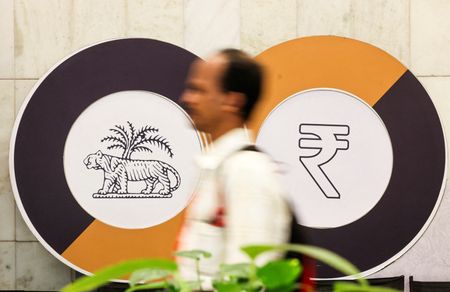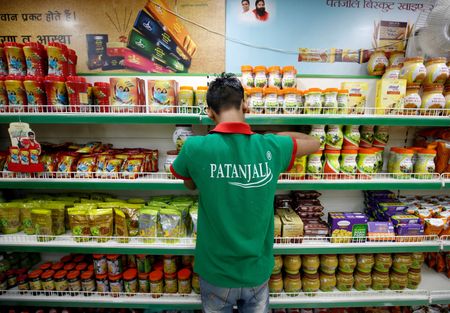By Kashish Tandon and Meenakshi Maidas
(Reuters) -Maruti Suzuki, India’s top carmaker, expects small car sales to grow faster than SUVs, driven by recent tax cuts aimed at reviving sluggish domestic demand, its chairman said on Friday, after the firm missed quarterly profit estimates.
India simplified its goods and services tax (GST) structure on September 22, lowering the levy on small cars to 18% from 28%, while raising it on larger vehicles to 40%. The move is aimed at spurring demand in the price-sensitive segment that has been under pressure,
“The retail sales of vehicles in the 18% GST category are likely to grow faster than those in the 40% category,” Chairman, R.C. Bhargava said, adding that about 70% of Maruti’s production falls under the lower tax bracket.
Maruti, like most Indian automakers, has been grappling with weak domestic demand, mirroring an industry-wide slowdown that has led to single-digit profit growth for five straight quarters.
Domestic sales dropped 4.8% in the first half of the fiscal that began in April, including an 11.5% dip in the September quarter and small car sales falling 4.3%.
Exports, however, surged 42.2% to 110,487 units.
“Export business is going to be a major part of our operations and is contributing significantly to profitability,” Bhargava said, adding that Maruti, India’s largest exporter of cars, expects to export over 400,000 vehicles this fiscal year, 20.3% higher than last year.
Maruti’s second-quarter profit rose 7.3% to 32.9 billion rupees ($374.3 million), missing analysts’ estimate of 35.93 billion rupees, per data compiled by LSEG.
Its operating margin contracted to 8.5% from 10.3% a year earlier, hit by higher commodity and marketing costs.
Shares fell as much as 1.6% on Friday, but are up 49% so far this year, hitting record highs in August after the tax cuts were first announced.
Maruti, majority-owned by Japan’s Suzuki Motor, has been expanding its SUV portfolio to fend off competition from Hyundai and Tata Motors.
On Thursday, Hyundai Motor India said it was on track to exceed its export target for fiscal 2026 and was seeing improved demand following the tax reforms.
($1 = 87.8950 Indian rupees)
(Reporting by Chandini Monnappa, Kashish Tandon and Meenakshi Maidas in Bengaluru; Editing by Mrigank Dhaniwala and Sonia Cheema)








